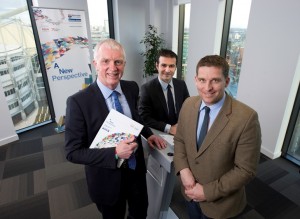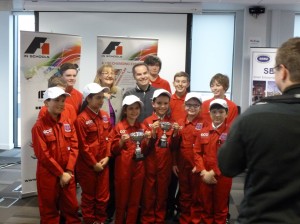Dr Stefanie Reissner, a lecturer in organisational studies from Newcastle University Business School, has revealed that what is widely considered gossip in the workplace can actually help boost work performance.
My research, funded by the Economic and Social Research Council (ESRC), found that a company is a community that is maintained by sharing personal stories, which I call peer storytelling. Organisations that use peer storytelling well, establish constructive working relationships that are vital for effective operations, leading to improved business outcomes.
From childhood, individuals are conditioned to respond to and understand problems and issues, through storytelling. This translates into the world of work.
The research shows that sharing personal stories, from the funny to the emotional, can allow individuals to connect with others at work. Such a ‘connection’ enables them to understand colleagues and their actions in the workplace. This leads to improved judgement about behaviour, with benefits such as employees feeling more comfortable challenging one another. The result is more robust decision making and, arguably, better work performance.
Informal work conversations often get a bad press because they allegedly distract from the task at hand. But I ask: does being professional mean to be authoritative and impersonal on all occasions? My study shows that peer storytelling can alleviate pressure at work. If people are more at ease at work, they can be more focussed and productive in their daily routines.
I would encourage firms to appreciate the importance of peer storytelling as employees can convey everything from what makes them ‘tick’ to their ethics at work. In fact, far from distracting, peer storytelling can be good for an organisation.
This is pertinent nowadays when we are seeing rises in new business models like ‘hot-desking’ and limited personal interaction with colleagues and managers. Appreciating the human side of an organisation is vital in building a cohesive workforce in today’s network economy.
But, despite the potential benefits of peer storytelling, there can be negative effects on individuals and the organization. For example, the communication grapevine – an informal network by which unofficial information is transmitted within a place of work – can be harmful when rumour or inaccurate detail leads to misunderstanding and destroys relationships, trust and reputation.
I hope that the findings from this research can challenge the way employers think about how they build staff relationships and HR policies to foster meaningful interaction in the workplace.
The findings come from data collected from interviews with 75 individuals, between 2010 and 2012, and are now available in print. The book Storytelling in Management Practice, authored by Stefanie Reissner and Victoria Pagan, explores how managers use storytelling in practice, as well as its functions at different levels within an organisation.




